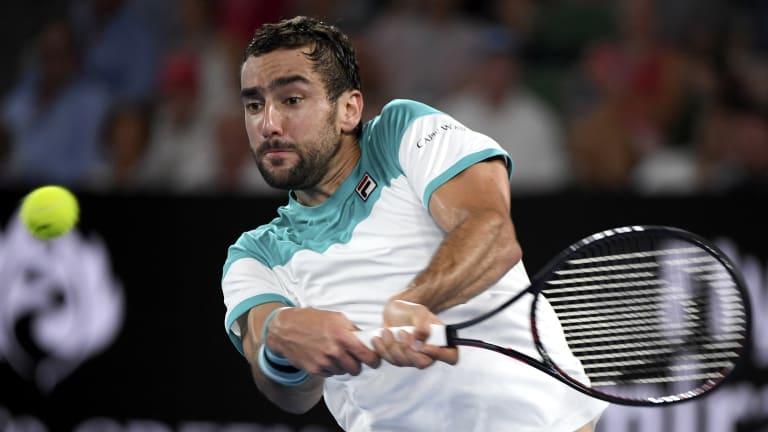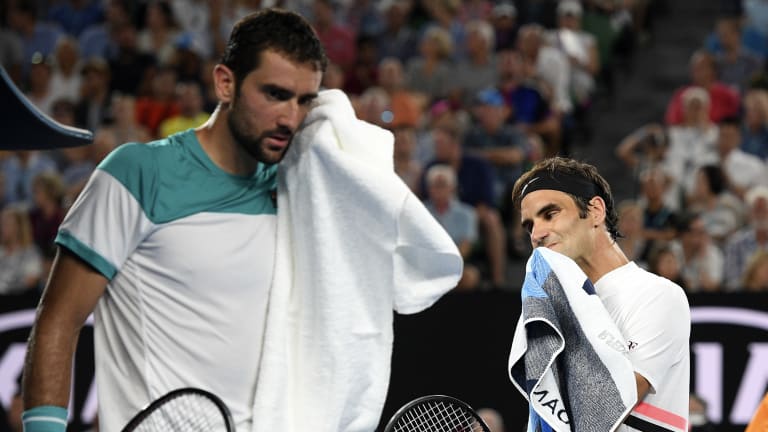MELBOURNE—It was 1:10 a.m. Monday morning when Roger Federer walked into the main media room, located on the fourth floor of Melbourne Park’s new media center. A year ago, he had also won a five-set Australian Open singles final, over Rafael Nadal. The cornerstones of that victory had been redemption and even surprise, Federer at that point having gone more than four years without winning a Grand Slam title.
This year's five-set final-round triumph, over Marin Cilic, was perhaps more a spirit of relief, followed by rejoice.
“The night is still young,” Federer said as he held the Norman Brookes Challenge Cup—the trophy he last year dubbed “Norman”—aloft.
The data would show that Federer had won a staggering 20th Grand Slam singles title, beating Cilic by the score of 6-2, 6-7 (5), 6-3, 3-6, 6-1. “I think experience helped me there a little bit,” said Federer, “and also a little bit of luck, I felt like I needed a little bit tonight.”
It his third Grand Slam victory in the last 12 months and first successful title defense of one since the 2008 US Open. But data meant nothing in the face of the emotions Federer went through this evening. Last year, against his toughest rival, he overcame a 3-1 fifth-set deficit. But against Cilic, Federer had suddenly gone from driver to passenger, seeing his 3-1 lead vanish when leading by two sets to one. He then found himself down a pair of break points in the opening game of the fifth set.
“For me it was really just trying to break his momentum,” said Federer. “Tried to serve well. Tried to get lucky a little bit. I think I was able to get that first game, at least get on the board. From then on, maybe momentum shifts a little bit, and it's exactly what happened.”

